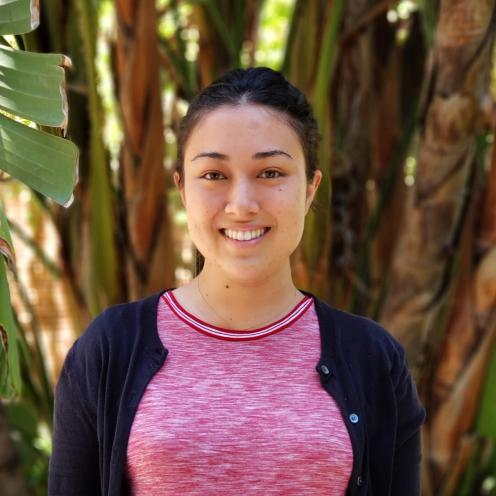
Like many of us, Dr. Amanda Garcia’s college and career path started down one path and ended up at a very different destination than she had mapped out. Garcia grew up in Los Angeles and wanted to study Fine Arts. She trekked across the US and attended college on the East coast for one semester studying fine art and soon realized that was not the path for her. She moved back to Los Angeles, enrolled in community college, took biology and chemistry classes and discovered she really loved science. She transferred to UCLA to complete her undergraduate degree where she stumbled on the field of astrobiology and was completely smitten. She graduated from UCLA with her Bachelor of Science in geology, with a focus on paleobiology. She found she liked exploring the big questions like “How and when did life begin?” And “Does life exist beyond earth?”
Garcia continued her studies at UCLA, exploring the intersection of geology and biology. Her thesis topic was on investigating atmospheric and temperature changes during the early Earth, using both the geologic record and experimental reconstructions of ancient proteins.
Through Garcia’s work at UCLA on estimating proteins and testing temperature changes on earth billions of years ago, she met Dr. Betul Kacar, Assistant Professor of Astrobiology at the University of Arizona, and knew she wanted to continue this work. She accepted a position as a UA Postdoc in Kacar’s lab and will be working on a family of enzymes called nitrogenaces. These enzymes “fix” nitrogen, making this essential element usable for life. The goal of this research is to see how understanding the characteristics of early nitrogenases can help interpret ancient geologic signatures of nitrogen fixation. They achieve that by doing a bit of time travel of sorts – they go back in time by experimentally “resurrecting” ancient nitrogenases and testing their properties. These properties, when compared with geologic signatures, will help us understand the evolution of life’s ability to fix nitrogen.
Because of her accomplishments and research background, Garcia recently received the highly selective NASA postdoctoral fellowship in astrobiology.
Garcia’s NASA Postdoctoral Fellowship is the first for MCB and the first for UA in over 10 years! Garcia's interdisciplinary background in paleontology and molecular evolution puts her in a unique position to carry out the project that connects global biological cycles with metabolic activity.
In order to host a NASA postdoctoral fellow, the host research laboratory must be associated with an existed NASA research facility or funded grant effort. Garcia will be connected with the NASA Reliving the History of Life Astrobiology Node where Kacar serves as a co-Investigator. Kacar is excited to have Garcia coming on board – “I look forward to hosting Dr. Garcia in my laboratory and carrying astrobiology research forward in the campus.”
Click here to learn more about Kacar’s lab and here to learn more about the NASA Astrobiology Postdoctoral Program.
In between studying how and when life on earth was formed, and wrapping up her work at UCLA, Garcia will be packing her bags and moving to Tucson. She has never lived in the desert southwest and is looking forward to experiencing our current day desert life forms. Congratulations Dr. Garcia, and welcome to Tucson and the University of Arizona!





